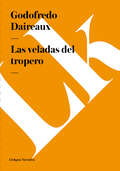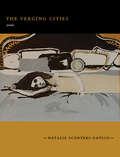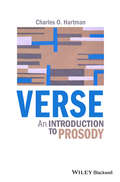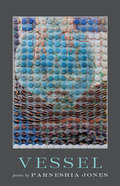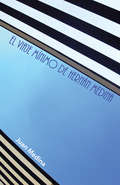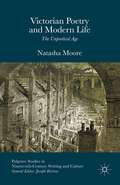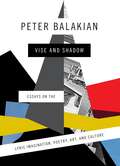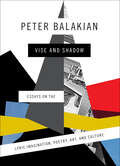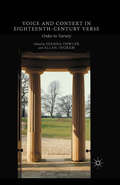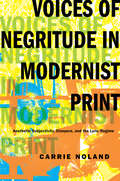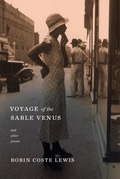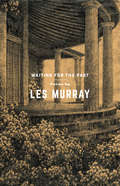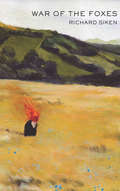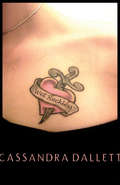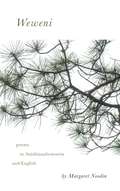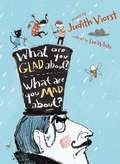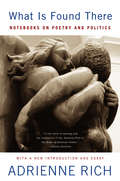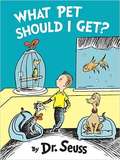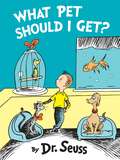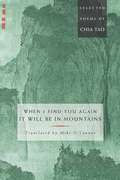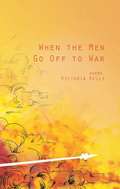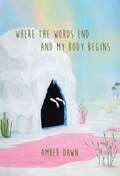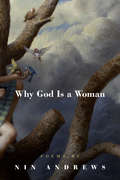- Table View
- List View
Las veladas del tropero
by Godofredo DaireauxLas veladas del tropero tells a series of stories set in Argentina's 19th century haciendas.
The Verging Cities (Mountain West Poetry Series)
by Natalie Scenters-ZapicoFrom undocumented men named Angel, to angels falling from the sky, Natalie Scenters-Zapico’s gripping debut collection, The Verging Cities, is filled with explorations of immigration and marriage, narco-violence and femicide, and angels in the domestic sphere. Deeply rooted along the US-México border in the sister cities of El Paso, Texas, and Cd. Juárez, Chihuahua, these poems give a brave new voice to the ways in which international politics affect the individual. Composed in a variety of forms, from sonnet and epithalamium to endnotes and field notes, each poem distills violent stories of narcos, undocumented immigrants, border patrol agents, and the people who fall in love with each other and their traumas. The border in Scenters-Zapico’s The Verging Cities exists in a visceral place where the real is (sur)real. In these poems mouths speak suspended from ceilings, numbered metal poles mark the border and lovers’ spines, and cities scream to each other at night through fences that “ooze only silt.” This bold new vision of border life between what has been named the safest city in the United States and the murder capital of the world is in deep conversation with other border poets—Benjamin Alire Saenz, Gloria Anzaldúa, Alberto Ríos, and Luis Alberto Urrea—while establishing itself as a new and haunting interpretation of the border as a verge, the beginning of one thing and the end of another in constant cycle.
Verse: An Introduction to Prosody (Princeton Legacy Library #2809)
by Charles O. HartmanVerse is a seminal introduction to prosody for any student learning to read or write poetry, from secondary to graduate school. Discusses iambic pentameter and other kinds of metrical verse, scansion, rhythm and rhyme, free verse, song, and advanced topics such as poetic meter, linguistic approaches to verse, and the computer scansion of metrical poetry Written in a clear, engaging style by a poet and teacher with more than 30 years of experience teaching the subject Supplemented by a user-friendly website with student exercises and additional resources
Vessel
by Parneshia JonesThe imagination of a girl, the retelling of family stories, and the unfolding of a rich and often painful history: Parneshia Jones' debut collection explores the intersections of these elements of experience with refreshing candor and metaphorical purpose. A child of the South speaking in the rhythms of Chicago, Jones knits "a human quilt" with herself at the center. She relates everything from the awkward trip to Marshall Fields with her mother to buy her first bra to the late whiskey-infused nights of her father's world. In the South, "lard sizzles a sermon from the stove"; in Chicago, we feast on an "opera of peppers and pimento." Jones intertwines the stories of her own family with those of historical Black figures, including Marvin Gaye and Josephine Baker. Affectionate, dynamic, and uncommonly observant, these poems mine the richness of history to create a map of identity and influence.
El viaje mínimo de Hernán Medina
by Juan Medina¿Poesía de autoayuda? ¿Relato de mis días contigo? ¿Cuaderno de viajes de tu mano? Poemas para cuando explores el mundo. Sus dilemas, sus euforias, su intemperie. Porque existir es delicado. Pero tú decides. Aunque no lo creas. Estás vivo. Nada menos. No es fácil. Pon atención. A ti. Aquí. Ahora.
Victorian Poetry and Modern Life: The Unpoetical Age (Palgrave Studies in Nineteenth-Century Writing and Culture)
by Natasha MooreFaced with the chaos and banality of modern, everyday life, a number of Victorian poets sought innovative ways of writing about the unpoetic present in their verse. Their varied efforts are recognisably akin, not least in their development of mixed verse-forms that fused novel and epic to create something equal to the miscellaneousness of the age.
Vise and Shadow: Essays on the Lyric Imagination, Poetry, Art, and Culture
by Peter BalakianPeter Balakian is a renowned poet, scholar, and memoirist; but his work as an essayist often prefigures and illuminates all three. "I think of vise and shadow as two dimensions of the lyric (literary and visual) imagination," he writes in the preface to this collection, which brings together essayistic writings produced over the course of twenty-five years. Vise, "as in grabbing and holding with pressure," but also in the sense of the vise-grip of the imagination, which can yield both clarity and knowledge. Consider the vise-grip of some of the poems of our best lyric poets, how language might be put under pressure "as carbon might be put under pressure to create a diamond. " And shadow, the second half of the title: both as noun, "the shaded or darker portion of the picture or view or perspective," "partial illumination and partial darkness"; and as verb, to shadow, "to trail secretly as an inseparable companion" or a "force that follows something with fidelity; to cast a dark light on something--a person, an event, an object, a form in nature. " Vise and Shadow draws into conversation such disparate figures as W. B. Yeats, Hart Crane, Joan Didion, Primo Levi, Robert Rauschenberg, Bob Dylan, Elia Kazan, and Arshile Gorky, revealing how the lyric imagination of these artists grips experience, "shadows history," and "casts its own type of illumination," creating one of the deepest kinds of human knowledge and sober truth. In these elegantly written essays, Balakian offers a fresh way to think about the power of poetry, art, and the lyrical imagination as well as history, trauma, and memory.
Vise and Shadow: Essays on the Lyric Imagination, Poetry, Art, and Culture
by Peter BalakianPeter Balakian is a renowned poet, scholar, and memoirist; but his work as an essayist often prefigures and illuminates all three. "I think of vise and shadow as two dimensions of the lyric (literary and visual) imagination," he writes in the preface to this collection, which brings together essayistic writings produced over the course of twenty-five years. Vise, "as in grabbing and holding with pressure," but also in the sense of the vise-grip of the imagination, which can yield both clarity and knowledge. Consider the vise-grip of some of the poems of our best lyric poets, how language might be put under pressure "as carbon might be put under pressure to create a diamond." And shadow, the second half of the title: both as noun, "the shaded or darker portion of the picture or view or perspective," "partial illumination and partial darkness"; and as verb, to shadow, "to trail secretly as an inseparable companion" or a "force that follows something with fidelity; to cast a dark light on something—a person, an event, an object, a form in nature."Vise and Shadow draws into conversation such disparate figures as W. B. Yeats, Hart Crane, Joan Didion, Primo Levi, Robert Rauschenberg, Bob Dylan, Elia Kazan, and Arshile Gorky, revealing how the lyric imagination of these artists grips experience, "shadows history," and "casts its own type of illumination," creating one of the deepest kinds of human knowledge and sober truth. In these elegantly written essays, Balakian offers a fresh way to think about the power of poetry, art, and the lyrical imagination as well as history, trauma, and memory.
Vocabulary, Spelling, Poetry
by James A. Chapman Ed. D.Stimulate your child's analytical and memorization skills with Vocabulary, Spelling, Poetry V. This text puts an emphasis on the origin of vocabulary words; word analysis through the study of prefixes, roots, and suffixes; word analogies; synonyms and antonyms; and classic poetry. <p><p>This text is broken down into 12 units; each unit includes 12 vocabulary words, 2 sets of 15 spelling words, a list of prefixes, roots, and suffixes; and 5 word exercises to help implement new concepts. Nine well-known poems are also included for recitation and memorization to enhance the appreciation of poetry.
Voice and Context in Eighteenth-Century Verse: Order in Variety
by Allan Ingram Joanna FowlerThis collection of essays reassesses the importance of verse as a medium in the long eighteenth century, and as an invitation for readers to explore many of the less familiar figures dealt with, alongside the received names of the standard criticism of the period.
Voices of Negritude in Modernist Print: Aesthetic Subjectivity, Diaspora, and the Lyric Regime (Modernist Latitudes)
by Carrie NolandCarrie Noland approaches Negritude as an experimental, text-based poetic movement developed by diasporic authors of African descent through the means of modernist print culture. Engaging primarily the works of Aimé Césaire and Léon-Gontran Damas, Noland shows how the demands of print culture alter the personal voice of each author, transforming an empirical subjectivity into a hybrid, textual entity that she names, after Theodor Adorno, an "aesthetic subjectivity." This aesthetic subjectivity, transmitted by the words on the page, must be actualized—performed, reiterated, and created anew—by each reader, at each occasion of reading. Lyric writing and lyric reading therefore attenuate the link between author and phenomenalized voice. Yet the Negritude poem insists upon its connection to lived experience even as it emphasizes its printed form. Ironically, a purely formalist reading would have to ignore the ways formal—and not merely thematic—elements point toward the poem's own conditions of emergence. Blending archival research on the historical context of Negritude with theories of the lyric "voice," Noland argues that Negritude poems present a challenge to both form-based (deconstructive) theories and identity-based theories of poetic representation. Through close readings, she reveals that the racialization of the author places pressure on a lyric regime of interpretation, obliging us to reconceptualize the relation of author to text in poetries of the first person.
Voices of Negritude in Modernist Print
by Carrie NolandApproaches Negritude as an experimental, text-based poetic movement developed by diasporic authors of African descent through the means of modernist print culture
Voyage of the Sable Venus
by Robin Coste LewisA stunning poetry debut: this meditation on the black female figure throughout time introduces us to a brave and penetrating new voice.<P><P> Robin Coste Lewis’s electrifying collection is a triptych that begins and ends with lyric poems considering the roles desire and race play in the construction of the self. The central panel is the title poem, “Voyage of the Sable Venus,” a riveting narrative made up entirely of titles of artworks from ancient times to the present—titles that feature or in some way comment on the black female figure in Western art. Bracketed by Lewis’s autobiographical poems, “Voyage” is a tender and shocking study of the fragmentary mysteries of stereotype, as it juxtaposes our names for things with what we actually see and know. Offering a new understanding of biography and the self, this collection questions just where, historically, do ideas about the black female figure truly begin—five hundred years ago, five thousand, or even longer? And what role has art played in this ancient, often heinous story? From the “Young Black Female Carrying / a Perfume Vase” to a “Little Brown Girl / Girl Standing in a Tree / First Day of Voluntary / School Integration,” this poet adores her culture and the beauty to be found within it. Yet she is also a cultural critic alert to the nuances of race and desire and how they define us all, including herself, as she explores her own sometimes painful history. Lewis’s book is a thrilling aesthetic anthem to the complexity of race—a full embrace of its pleasure and horror, in equal parts.<P> Winner of the National Book Award
Waiting for the Past: Poems
by Les MurrayIn Waiting for the Past, Les Murray employs his molten sense of language to renew and transform our experience of the world. In quicksilver verse, he conjures his rural past, the life of the poor dairy boy in Australia, as he simultaneously feels the steady tug of aging, of time pulling him back to the present. Here, syntax, sense, and sound combine with such acrobatic grace that his poems render the familiar into the unknown, the unknown into the revelatory.Whether it's a boy on a walkabout hiding from grief, a sounding whale "spilling salt rain," or leaves that "tread on the sky," the great Australian poet's sense of wonder, his ear for the everyday, his swiftness of thought are everywhere in these pages. As Derek Walcott said of Murray's work, "There is no poetry in the English language now so rooted in its sacredness, so broad-leafed in its pleasures and yet so intimate and conversational."
War of the Foxes
by Richard Siken"His territory is [where] passion and eloquence collide and fuse.'--The New York Times"Richard Siken writes about love, desire, violence, and eroticism with a cinematic brilliance and urgency."--Huffington PostRichard Siken's debut, Crush, won the Yale Younger Poets' Prize, sold over 20,000 copies, and earned him a devoted fan-base. In this much-anticipated second book, Richard Siken seeks definite answers to indefinite questions: what it means to be called to make--whether it is a self, love, war, or art--and what it means to answer that call. In poems equal parts contradiction and clarity, logic and dream, Siken tells the modern world an unforgettable fable about itself.The MuseumTwo lovers went to the museum and wandered the rooms.He saw a painting and stood in front of itfor too long. It was a few minutes before sherealized he had gotten stuck. He was stuck lookingat a painting. She stood next to him, looking at hisface and then the face in the painting. What do yousee? she asked. I don't know, he said. He didn'tknow. She was disappointed, then bored. He waslooking at a face and she was looking at her watch.This is where everything changed . . . Richard Siken is a poet, painter, and filmmaker. His first book, Crush, won the Yale Younger Poets' prize. He lives in Tucson, Arizona.
Wet Reckless
by Cassandra DallettIn this poetic memoir of a rough and tumble life, from her backwoods childhood without boundaries to a California urban adulthood filled with triumphs and disasters, Cassandra Dallett spares no details in a poetry memoir that reads like the love child of Charles Bukowski and Elizabeth Bishop. These are stories of an outsider, a perpetual misfit, offering a ceasefire in the war she wages with herself.Cassandra Dallett's work has appeared in Slip Stream, Sparkle and Blink, Rusty Truck, Hip Mama, and the Criminal Class Review, among other publications. She currently occupies Oakland, California.
Weweni (Made in Michigan Writers Series)
by Margaret NoodinDepending on dialect, the Anishinaabemowin word "weweni" expresses thanks, exactitude, ease, and sincerity. In addition, the word for "relatives" is "nindenwemaaganag": those whose "enewewe," or voices, sound familiar. In Weweni, poet Margaret Noodin brings all of these meanings to bear in a unique bilingual collection. Noodin's warm and perceptive poems were written first in the Modern Anishinaabemowin double-vowel orthography and appear translated on facing pages in English. From planetary tracking to political contrasts, stories of ghosts, and messages of trees, the poems in Weweni use many images to speak to the interconnectedness of relationships, moments of difficulty and joy, and dreams and cautions for the future. As poems move from Anishinaabemowin to English, the challenge of translation offers multiple levels of meaning--English meanings found in Anishinaabe words long as rivers and knotted like nets, English approximations that bend the dominant language in new directions, and sets of signs and ideas unable to move from one language to another. In addition to the individual dialogues played out beween Noodin's poems, the collection as a whole demonstrates a fruitful and respectful dialogue between languages and cultures. Noodin's poems will be proof to students and speakers of Anishinaabemowin that the language can be a vital space for modern expression and, for those new to the language, a lyric invitation to further exploration. Anyone interested in poetry or linguistics will enjoy this one-of-a-kind volume.
What Are You Glad About What Are You Mad About: Poems for When a Person Needs a Poem,
by Judith ViorstFrom school to family to friends, from Grrrr to Hooray!, Judith Viorst takes us on a tour of feelings of all kinds in this thoughtful, funny, and charming collection of poetry that's perfect for young readers just learning to sort out their own emotions.
What Is Found There: Notebooks on Poetry and Politics (Expanded Edition)
by Adrienne RichAmerica's enduring poet of conscience reflects on the proven and potential role of poetry in contemporary politics and life. Through journals, letters, dreams, and close readings of the work of many poets, Adrienne Rich reflects on how poetry and politics enter and impinge on American life. This expanded edition includes a new preface by the author as well as her post-9/11 "Six Meditations in Place of a Lecture."
What Pet Should I Get?
by Dr SeussThis never-ever-before-seen picture book by Dr. Seuss about making up one's mind is the literary equivalent of buried treasure! What happens when a brother and sister visit a pet store to pick a pet? Naturally, they can't choose just one! <P><P> The tale captures a classic childhood moment--choosing a pet--and uses it to illuminate a life lesson: that it is hard to make up your mind, but sometimes you just have to do it! <P> Told in Dr. Seuss's signature rhyming style, this is a must-have for Seuss fans and book collectors, and a perfect choice for the holidays, birthdays, and happy occasions of all kinds. <P> An Editor's Note at the end discusses Dr. Seuss's pets, his creative process, and the discovery of the manuscript and illustrations for What Pet Should I Get?
What Pet Should I Get? (Classic Seuss)
by Dr. SeussA #1 New York Times bestseller! This previously never-before-seen picture book by Dr. Seuss about making up one&’s mind is the literary equivalent of buried treasure! What happens when a brother and sister visit a pet store to pick a pet? Naturally, they can&’t choose just one! The tale captures a classic childhood moment—choosing a pet—and uses it to illuminate a life lesson: that it is hard to make up your mind, but sometimes you just have to do it! Told in Dr. Seuss&’s signature rhyming style, this is a must-have for Seuss fans and book collectors, and a perfect choice for the holidays, birthdays, and happy occasions of all kinds. An Editor&’s Note at the end discusses Dr. Seuss&’s pets, his creative process, and the discovery of the manuscript and illustrations for What Pet Should I Get?
When I Find You Again, It Will Be in Mountains: The Selected Poems of Chia Tao
by Mike O'ConnorChia Tao (779-843), an erstwhile Zen monk who became a poet during China's Tang dynasty, recorded the lives of the sages, masters, immortals, and hermits who helped establish the great spiritual tradition of Zen Buddhism in China. Presented in both the original Chinese and Mike O'Connor's beautifully crafted English translation, When I Find You Again, It Will Be in Mountains brings to life this preeminent poet and his glorious religious tradition, offering the fullest translation of Chia Tao's poems to date.
When the Men Go Off to War
by Victoria KellyCollecting the nationally-recognized poems of Victoria Kelly, When the Men Go Off to War captures the hopes, anxieties, and intimacies of the military spouse during a time of war. Written over the course of her husband’s deployment in Iraq and Afghanistan, these haunting poems span vast geographical distances and generations, moving between the literal and the fanciful to find community in the midst of isolation. Kelly blends lyric and narrative elements to evoke themes of loneliness and human fragility with keen insight. But ultimately, When the Men Go Off to War is a heartrending ode to enduring romance, the reclamation of a marriage tested by loss and separation.
Where the words end and my body begins
by Amber DawnAward-winning novelist and memoirist Amber Dawn reveals a gutsy lyrical sensibility in her debut poetry collection: a collection of glosa poems written as an homage to and an interaction with queer poets such as Gertrude Stein, Christina Rossetti, and Adrienne Rich. By doing so, Dawn delves deeper into the themes of trauma, memory, and unblushing sexuality that define her work.Amber Dawn is the author of the Lambda Award-winning novel Sub Rosa and the memoir How Poetry Saved My Life (winner of the Vancouver Book Award). Her other awards include the Writers' Trust of Canada Dayne Ogilvie Prize.
Why God Is a Woman
by Nin AndrewsWhy God Is a Woman is a collection of poems written about a magical island where women rule and men are the second sex. It is also the story of a boy who, exiled from the island because he could not abide by its sexist laws, looks back with both nostalgia and bitterness and wonders: Why does God have to be a woman? Celebrated prose poet Nin Andrews creates a world both fantastic and familiar where all the myths, logic, and institutions support the dominance of women.Nin Andrews's books include The Book of Orgasms and Sleeping with Houdini.
